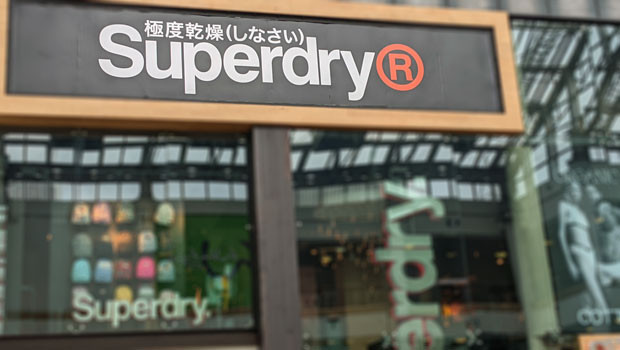Superdry withdraws 'broadly breakeven' FY profit guidance

Fashion retailer Superdry withdrew its "broadly breakeven" full-year profit guidance on Friday as it pointed to a challenging trading environment and disappointing retail sales in February and March, and confirmed it is considering a capital raise.
FTSE All-Share
4,766.13
17:14 03/06/25
FTSE Small Cap
6,942.20
17:14 03/06/25
Personal Goods
15,272.40
17:14 03/06/25
Superdry
3.29p
16:40 12/07/24
The company said retail sales continue to show “good” like-for-like growth, albeit at a slower rate than expected. It also said that while progress has been made with its wholesale partners to support their recovery, sales performance continues to be challenging.
Superdry said retail sales in February and March showed "significant" year-on-year like-for-like growth but did not meet the group’s expectations. This was put down mainly to factors outside the company’s control, including the cost-of-living crisis and poor weather denting demand for the new spring-summer collection.
As a result, it now expects FY23 revenue of £615m to £635m, versus £609m in full-year 2022.
"The increasing amount of uncertainty arising from the final weeks of trading and the actions associated with the reorganisation of our wholesale division make the assessment of full year profit challenging," it said. "Therefore, the board has taken the decision to withdraw the previously issued guidance of broadly breakeven for our FY23 adjusted profit before tax."
Superdry also confirmed that it is considering an equity raise of up to 20% of its issued share capital. This will be fully supported by founder and chief executive Julian Dunkerton, who will "materially" participate in any such equity raise.
In addition, the company said it has identified initial cost savings of more than £35m which have been externally validated. These will be achieved through estate optimisation, logistics and distribution savings, better procurement, and continued range reduction.
Dunkerton said: "The Superdry brand continues to evolve but there is no doubt that the market conditions we face are challenging, compounded by the issues we have previously disclosed and are working to address in wholesale.
"As a result, while we continue to deliver like-for-like growth in retail sales, we need to ensure our business is in the right shape to navigate these difficult times, which is why we are looking hard at our cost base."
At 0825 BST, the shares were down 17% at 88.40p.
Sophie Lund-Yates, lead equity analyst at Hargreaves Lansdown, said there's merit to Superdry's argument that the cost-of-living crisis is holding back performance, "when you consider that middle-value fashion is the most vulnerable during difficult times, but there have also been execution-led failures with Superdry".
"The group is walking down the right path as it tries to achieve long-term cost savings through its store estate and logistics, but cost savings can only carry you so far. At some point organic demand needs to carry the mantle."
Russ Mould, investment director at AJ Bell, said: "High street fashion brand Superdry’s soggy sales outlook and decision to withdraw profit guidance suggests it is really struggling against a backdrop where shoppers are becoming more careful with their money.
"Blaming the weather for poor performance is never something likely to endear a business to investors and yet Superdry reaches for this excuse as it seeks to explain a downturn in sales in February and March.
"Today’s update is only likely to fuel the argument that the brand is just no longer as relevant as it once was, with fewer people prepared to pay a premium for its faux-Japanese stylings.
"Reducing costs will help in the short term but reducing the number of clothing ranges could diminish its appeal further. Closing shops is also sensible but suggests things are only going one way. Its destiny could be the same as the likes of Joules and Cath Kidston, with the brand owned by a third party and its high street presence being diminished or disappearing entirely."